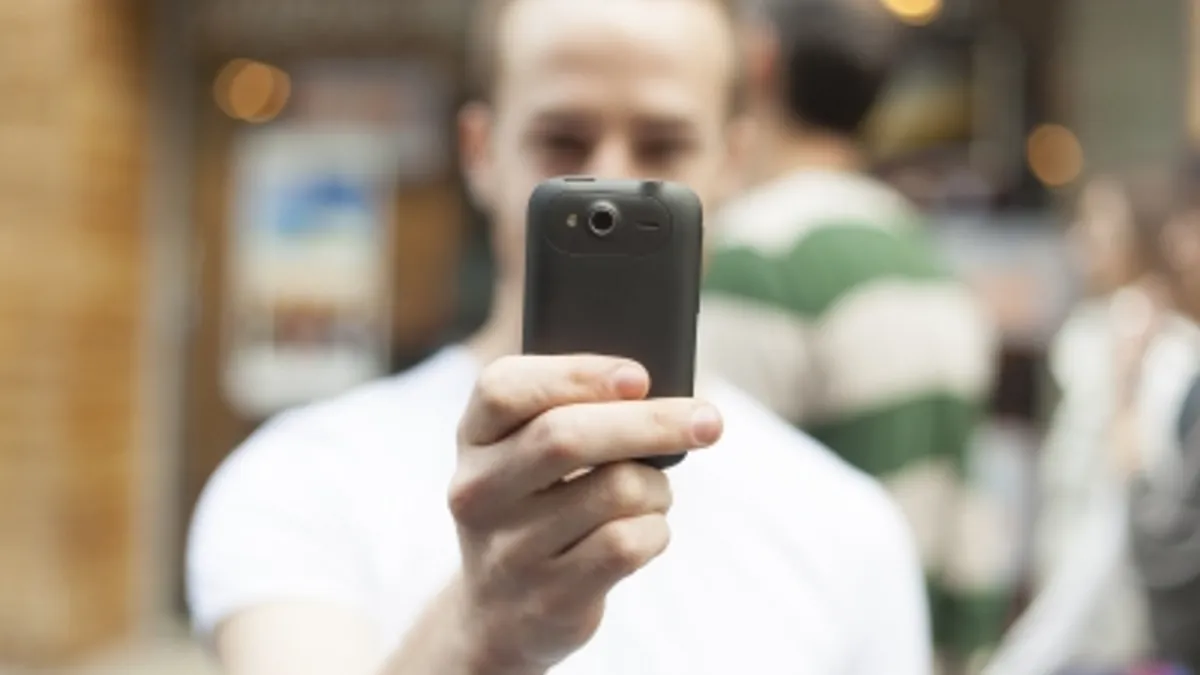When teachers are able to see themselves teach in the classroom, everyone stands to improve.
That’s the notion that guides a new initiative unfolding in the Georgia, where Cayanna Good, Deputy Director of Innovation and Strategy for the Governor's Office of Student Achievement (GOSA), is spearheading a statewide program that aims to bring video observations to more classrooms across the state.
Georgia utilizes a contest called the Innovation in Teaching Competition, which began as part of a Race to the Top plan to recognize and reward Georgia teachers who embraced creative strategies in the classroom.
Taped video recordings of those high-performing educators is available on the Georgia Department of Education’s offshoot website GeorgiaStandards.org, so other teachers can watch and learn from their peers. The videos are supplemented with unit lesson plans and other resources.
All but six U.S. state currently require some form of evaluation, according to a 2013 study from the National Council on Teacher Quality.
A two-year impact study done by Harvard University published in May 2015 called “Best Foot Forward (BFF)” found video observation can contribute to heightened reliability in classroom observation.
Best Foot Forward began as an offshoot of another research study, called the Measures of Effective Teaching at Harvard, said Miriam Greenberg, project director at Harvard’s Center for Education Policy Research and an author of the study.
BFF looked at large districts in Georgia and North Carolina, smaller urban and rural districts in California, Delaware and Colorado, and at the Relay Graduate School of Education. Research partners for the BFF study included BloomBoard, Panorama Education, Pearson Education, Teachstone, thereNow and TNTP.
“We wanted to know whether video technology can make teacher evaluation better – more reliable, easier to do, and most importantly, more empowering for teachers,” Greenberg told Education Dive.
Overall, the study found that video observation made subsequent conversations around evaluation less adversarial. Teachers were more open to constructive feedback, and feedback from principals was much more specific.
That's because it was much easier to pinpoint what educators did best, and where exactly they needed to improve. Teachers were enabled to observe student reactions to their discussions and questions in a way otherwise impossible to replicate in the midst of giving a lesson.
“BFF provides a possible solution to the teacher evaluation debate plaguing K-12 education right now: How do you empower teachers in an evaluation process?” Greenberg explained. “How do you make evaluations actual occasions for improvement, rather than just punitive exercises? When teachers get a first pass at watching and sharing their instruction, they reap much more from the experience of evaluation overall.”
Still, not everyone agrees that teacher observations in general hold so much potential.
A study from the University of Pennsylvania Graduate School of Education and the American Institutes for Research published in the Educational Evaluation and Policy Analysis claimed that observing teachers in the classroom for the purpose of evaluation can "fail to meaningfully assess teacher performance." and that prior academic achievement by students is a better predictor of how well teachers are doing their jobs.
“The misidentification of teachers’ performance levels has real implications for personnel decisions," the study's authors said, "and fundamentally calls into question an evaluation system’s ability to effectively and equitably improve, reward and sanction teachers.”
But Greenberg is quick to point out that no single measure of teacher performance is sufficient on its own.
“Teaching is a complex job, more complex than most people think,” she explained. “We need to assess teaching from multiple angles-- student growth and perceptions, teacher analysis and reflection, and peer and principal observation. Doing this makes evaluation scores more valid and reliable and gives more robust feedback to teachers.”
An accompanying toolkit was also published alongside the BFF study to help teachers and school administrators leverage the use of video.
The toolkit laid out five ways educators can reflect, collaborate, and end teacher isolation through self-reflection, peer collaboration, virtual coaching, evaluation and video libraries.
In observations, video is especially valuable because it provides a common reference point, Dr. Michael Moody, a former teacher, principal and CEO of the company Insight ADVANCE, told Education Dive.
“This is key," Moody said, "because we know that teachers often dismiss feedback from traditional observations and are many times not even aware of what their teaching really looks like. Video promotes an open dialogue between teachers and observers that not only improves the quality of feedback, but also increases teachers’ ability to understand and accept it.”
Moody’s company, Insight, partnered with SmartBrief Education to find out how educators feel about being video taped. According to their survey, 91% of teachers polled felt that just filming their instruction would help them grow professionally.
Teacher buy-in is important. It can be helped by allowing educators to control video cameras, recorded sessions, and even being able to opt-out if they’d like.
Practical matters like the use of release forms also need to be considered, said Moody, who recommended that media release forms should be kept on file at schools. He also noted that districts should take precautions to ensure observational videos are securely stored and shared.
“In our report 'A game changer: Using video to achieve high performance in the classroom,' we explained the need for district and school leaders to take a thoughtful approach to implementation,” Moody continued. “School leaders can proactively address issues by rolling out programs slowly and selecting 'champions' within schools to help other teachers utilize the technology and generate buy-in.”
Would you like to see more education news like this in your inbox on a daily basis? Subscribe to our Education Dive email newsletter! You may also want to read Education Dive's conversation with Newtown Superintendent Joseph Erardi about the importance of SEL in his district's ongoing recovery.




















